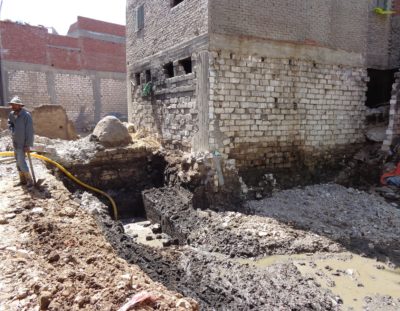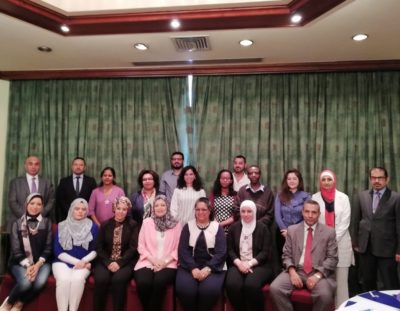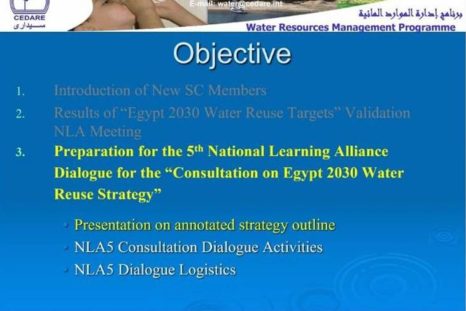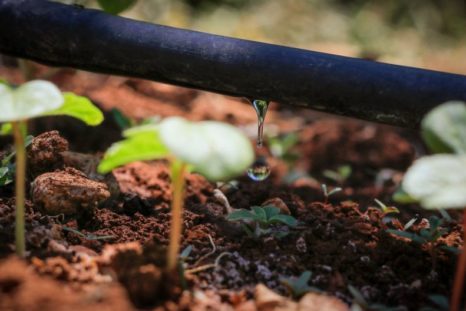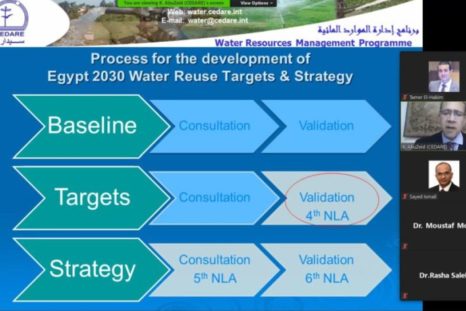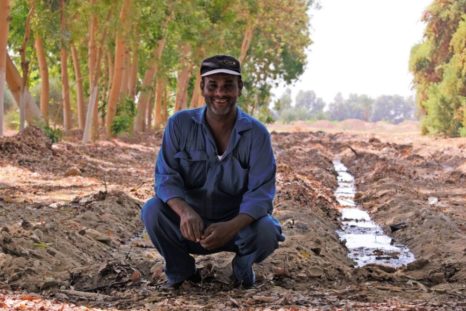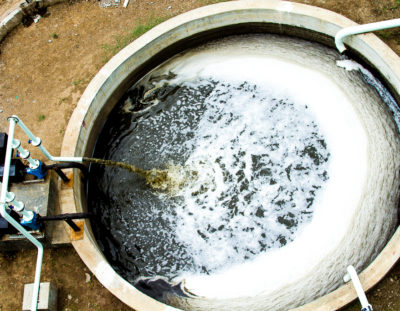Pages
March 19, 2020Citizens’ participation in water resources management is a buzz word that has received attention from donor organisations and governments. Participatory approaches are implemented in countless development projects and programs, particularly in developing countries. But the question is, what sort of “participatory” governance do we need - as development professionals in the water sector - to achieve development goals (e.g. SDG 6)?
July 8, 2019Unlocking the potential of gender mainstreaming in the MENA region’s water reuse sector was the focus of a 3-day workshop held from 18-20th June in Cairo. The workshop, convened by the ReWater MENA project, was designed to provide the participants with ideas on how to mainstream gender in their work plans.
July 8, 2021On June 28th, 2021, ReWater MENA project in partnership with the Center for Environment and Development for the Arab Region and Europe (CEDARE), organized the 4th National Steering Committee (NSC) Virtual Meeting in Egypt to discuss the progress made in "Egypt 2030 Water Reuse Targets". The objective of the meeting was to update the (NSC) on the results of the latest NLA meeting and to discuss the upcoming National Learning Alliance (NLA) Dialogue.
September 20, 2021The series of triennial Arab Water Forum (AWF) is considered the most important water-related event in the Arab region.
September 16, 2022Water scarcity and pollution are major threats for human development in the Middle East, and Lebanon is no exception. Wastewater treatment and its reuse in agriculture can contribute to addressing the increasing water crisis in the region. But, what is the actual potential of water reuse as a solution for agriculture in Lebanon?
July 8, 2021ReWater MENA project, in cooperation with the Centre for Environment and Development for the Arab Region and Europe (CEDARE), organized the Fourth National Learning Alliance (NLA) Virtual Dialogue in Egypt on Water Reuse to validate the national and local targets for water reuse 2030.
September 23, 2022Recycling water could supplement, or substitute water needs in sectors suffering from water shortage, reduce groundwater pumping and alleviate the use of freshwater in the agricultural sector, researchers of the "Water reuse in Middle East and North Africa: A sourcebook” have reported.
July 12, 2022
June 4, 2020Antimicrobial resistance (AMR) also known as the silent pandemic, is a serious global health threat and low- and middle-income countries are likely to be the most affected in terms of economic burden and public health.
March 19, 2020
Citizens’ participation in water resources management is a buzz word that has received attention from donor organisations and governments. Participatory approaches are implemented in countless development projects and programs, particularly in developing countries. But the question is, what sort of “participatory” governance do we need - as development professionals in the water sector - to achieve development goals (e.g. SDG 6)?
July 8, 2019
Unlocking the potential of gender mainstreaming in the MENA region’s water reuse sector was the focus of a 3-day workshop held from 18-20th June in Cairo. The workshop, convened by the ReWater MENA project, was designed to provide the participants with ideas on how to mainstream gender in their work plans.
July 8, 2021
On June 28th, 2021, ReWater MENA project in partnership with the Center for Environment and Development for the Arab Region and Europe (CEDARE), organized the 4th National Steering Committee (NSC) Virtual Meeting in Egypt to discuss the progress made in "Egypt 2030 Water Reuse Targets". The objective of the meeting was to update the (NSC) on the results of the latest NLA meeting and to discuss the upcoming National Learning Alliance (NLA) Dialogue.
September 20, 2021
The series of triennial Arab Water Forum (AWF) is considered the most important water-related event in the Arab region.
September 16, 2022
Water scarcity and pollution are major threats for human development in the Middle East, and Lebanon is no exception. Wastewater treatment and its reuse in agriculture can contribute to addressing the increasing water crisis in the region. But, what is the actual potential of water reuse as a solution for agriculture in Lebanon?
July 8, 2021
ReWater MENA project, in cooperation with the Centre for Environment and Development for the Arab Region and Europe (CEDARE), organized the Fourth National Learning Alliance (NLA) Virtual Dialogue in Egypt on Water Reuse to validate the national and local targets for water reuse 2030.
September 23, 2022
Recycling water could supplement, or substitute water needs in sectors suffering from water shortage, reduce groundwater pumping and alleviate the use of freshwater in the agricultural sector, researchers of the "Water reuse in Middle East and North Africa: A sourcebook” have reported.
July 12, 2022
June 4, 2020
Antimicrobial resistance (AMR) also known as the silent pandemic, is a serious global health threat and low- and middle-income countries are likely to be the most affected in terms of economic burden and public health.

